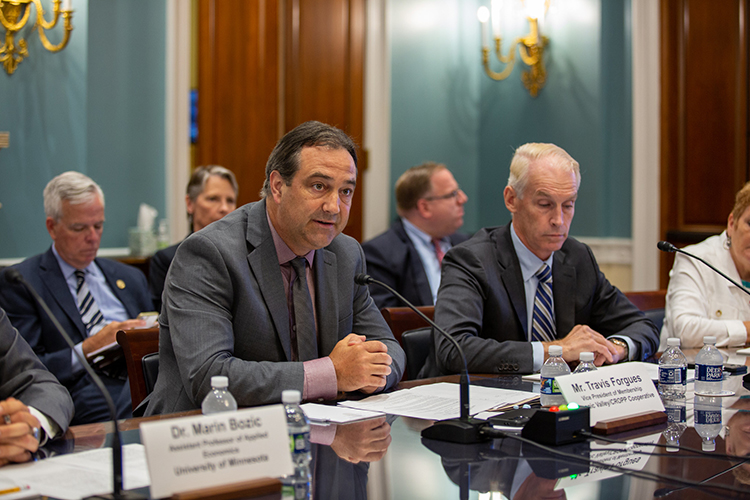
“The organic dairy sector witnessed a demand surge as the COVID-19 pandemic first gripped the nation,” shared Organic Valley’s Travis Forgues during testimony on June 22 at the House Agriculture Committee hearing, “A 2022 review of the farm bill: Dairy provisions.”
“Consumer purchasing patterns shifted and, according to the Organic Trade Association survey data, average annual category growth was around 5.5% for 2020 and 2021 when combined,” continued the executive vice president of membership for Organic Valley. “That said, the most recent data shows growth is flat, but we at Organic Valley continue to meet our sales expectations indicating some of those purchasing shifts to premium dairy are continuing.”
Costs fly sky-high
“While the co-op is cautiously optimistic about the demand for organic dairy, and in fact is bringing on 58 additional farms in the Northeast who will be shipping with us by August, we must note serious headwinds driven by inflation and international disputes threaten the organic dairy marketplace,” continued Forgues who gave a nod to the cooperative extending memberships to those dairy producers dropped by Horizon and Maple Hill Creamery.
For context, the nine-year veteran with the cooperative shared these facts and figures:
• Transportation costs to get goods to retail have increased by 36%.
• Dairy processing costs are up 14% and climbing.
• Organic corn, soy, and hay are up 30%, 55%, and 48% respectively, with some regional variation.
• Farm pay prices have increased slightly, and the cooperative is planning to expand the volume of milk procured from membership 4% by the end of 2023.
Had to raise retail prices
“To mitigate some of these incurred costs, we have increased consumer prices for our branded products as much as 8% to 14% for some items. Some of these price increases are just hitting the marketplace now, so it’s unclear how they will be received,” continued Forgues, who started his professional career as a dairy farmer and was the first organic dairy farmer from Vermont to join Organic Valley in 1999.
“These increases are meant to try to cover co-op operating expenses and are not nearly enough to move resources back to farms that are wrestling with high fuel and high feed costs. The honest reality is the current environment is very daunting for many organic dairy farmers,” he shared with the House Ag Committee.
To read farm bill recommendations from Forgues, visit the U.S House of Representatives Committee Repository page with the June 22 testimony.








